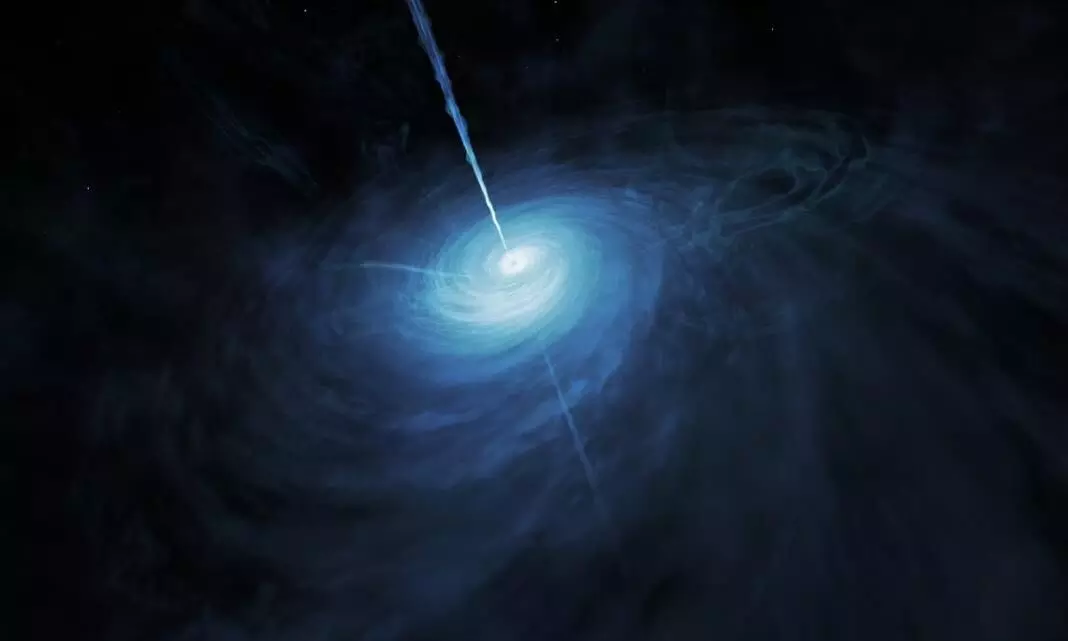
Brightest object in the universe found hiding in plain sight: study
text_fieldsNew York: Astronomers claim to have discovered the brightest celestial object in the universe, which emits light 500 trillion times stronger than the Sun.
The massive object is a quasar capable of emitting exceptionally large amounts of energy.
Quasars are ‘torrents of superheated gas’ which are powered by massive black holes.
This quasar, according to European Southern Observatory, is powered by the fastest-growing black hole ever found consuming a sun's worth of material daily.
Though exceptionally bright, the celestial object had been hiding in plain sight for several decades.
The observatory reportedly said that the object being so bright that it was initially classified as a star, sitting not so far away from Earth.
The quasar sits so far away that its light took over 12 billion years to reach Earth.
The black hole that powers the quasar is growing in mass by the equivalent of one Sun per day, becoming by far the fastest-growing black hole.
It is known that quasars emit huge amounts of light during an energetic process where black holes drive them to collect matter from their surroundings.
Christian Wolf, an astronomer at the Australian National University (ANU) and lead author of the study published today in Nature Astronomy said that ‘We have discovered the fastest-growing black hole known to date’, adding that ‘it has a mass of 17 billion Suns and eats just over a Sun per day’.























